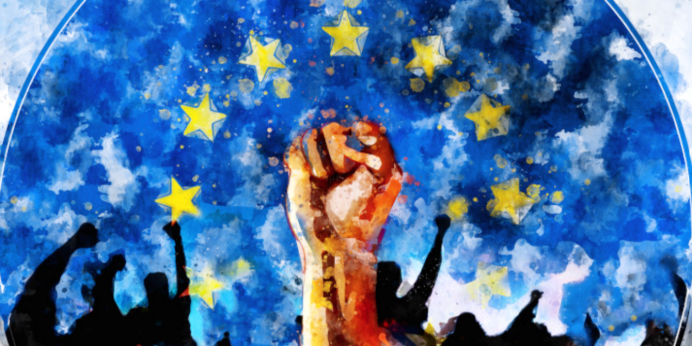December 10, 2024: The EU Statement of the EU Delegation in China on the International Human Rights Day said “serious concerns persist regarding civil, cultural, economic, social and political rights” and urged “China to respect, protect, and fulfil human rights for everyone, including persons belonging to ethnic, religious, and linguistic minorities.” It called on “China to engage constructively and effectively with the Office of the United Nations High Commissioner for Human Rights and with international human rights mechanisms, including all relevant Special Procedures and to address these issues comprehensively.”
The EU called for the “abolition of the death penalty in all cases and all circumstances” in China and said “individuals who speak out continue to be exposed to harassment, intimidation and surveillance and subjected to exit bans, house arrest, torture and ill-treatment, unlawful detention, sentencing and enforced disappearance.” It “strongly encouraged” China to “uphold the rule of law and to guarantee fair trials and due process for all.” It called “for comprehensive investigations into reported cases of arbitrary detention, torture, and other forms of -, as well as harassment targeting human rights defenders and their families.”
In East Turkistan, the EU’s concerns included “mass detention, widespread surveillance, tracking and control measures and the use of forced labour, as well as allegations of torture, forced abortion and sterilisation, birth control policies, and sexual and gender-based violence.” The EU was “particularly concerned about the systemic and severe restrictions on the exercise of fundamental freedoms, including the freedom of religion or belief, and systemic restrictions on the right of minorities to enjoy their own culture, and to use their own language, in private and public, including in the field of education.”
In Hong Kong, the EU expressed great concern on “the politically motivated trials of pro-democracy figures, such as Jimmy Lai or the politicians and activists commonly known as the “Hong Kong 47”.” The EU urged “the Chinese central government and the Hong Kong authorities to restore full respect for the rule of law, fundamental freedoms, and democratic principles, and to preserve Hong Kong’s high degree of autonomy under the ‘one country, two systems’ principle, in compliance with China’s international obligations.”
In Southern Mongolia, the EU “observed a worrisome decline in the preservation and promotion of ethnic minority rights, particularly regarding the Mongolian community.” It said “the shift from Mongolian as a vehicle of instruction in schools to mere subject of study suggests a significant erosion of cultural identity and heritage. These policy changes stand in contrast with the regional government’s commitment to ethnic harmony and cultural preservation, limiting the Mongolian language’s vitality and reducing its everyday use.”
The statement’s section on Tibet said “authorities in Tibetan areas continue to severely restrict freedom of speech and expression, movement, and assembly. Severe restrictions on the freedom of movement of Tibetans include strict limitations on passports allowing international travel. Tibetan Lamas are subjected to additional stringent controls for domestic travel. Tibetan Buddhism is subject to increasing control over religious practices leading to alignment with the ideology of the Chinese Communist Party. The setup of a system of obligatory boarding schooling for Tibetan children has also been reported by UN experts and civil society organisations. Cases of closure of schools teaching in Tibetan language, such as the Jigme Gyaltsen Nationalities Vocational School in Golog, are another worrying development.”
The EU statement mentions the side visit to Tibet undertaken by members of the EU delegation during the 39th EU-China Human Rights Dialogue held in the Chinese city of Chongqing in June 2024. The EU encouraged more visits from the international community and civil society organisations.


